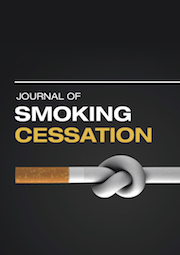Article contents
Doctors' Attitude Towards Current Smokers With Chronic Obstructive Pulmonary Disease and Its Impact on Delivering Smoking Cessation Advice
Published online by Cambridge University Press: 21 February 2012
Abstract
Objective: To explore the attitudes of hospital doctors towards current smokers with Chronic Obstructive Pulmonary Disease (COPD). Methods: We surveyed 184 hospital doctors of all grades regarding their attitudes to four patient scenarios including: current excess alcohol drinker, current smoker limited by angina, current intravenous drug user and current smoker limited by COPD. Doctors scored to what degree they felt the patients were at fault for their condition and in control of their future health. Results: Most doctors agreed/strongly agreed that current smokers with COPD were the most ‘at fault’ for their condition and when asked to rank the four patients from most to blame to least to blame for their own ill health, 80% doctors ranked smokers with COPD more to blame than smokers with angina. In the last 2 weeks almost all doctors had managed smokers, but only two thirds had offered any form of cessation advice. Comment: A significant proportion of doctors believe that patients with COPD are at fault for their condition; however, they appear to believe there is scope for change in smokers and other addicted patients. By implementing smoking cessation training, doctors can improve the care offered to smokers and avoid the negative attitude towards smokers with COPD.
- Type
- Articles
- Information
- Copyright
- Copyright © Cambridge University Press 2008
- 9
- Cited by




